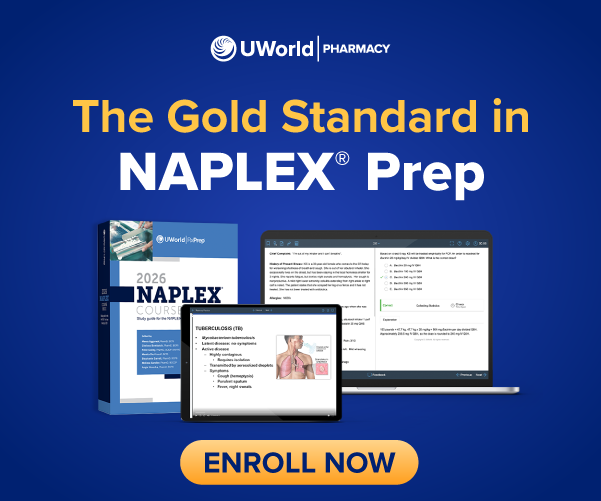Completing Advanced Pharmacy Practice Experiences (APPEs) is a pivotal step in your journey from pharmacy student to practicing professional. These real-world experiences build clinical confidence and sharpen decision-making. Let’s explore what APPE rotations involve, why they matter, and how you can make the most of every rotation site.
What Are APPE Rotations and Why Do They Matter?
Before diving into strategies for success, it’s important to understand what APPE rotations are and how they fit into your pharmacy education and career path.
Understanding APPEs
APPEs are immersive clinical rotations that prepare pharmacy students for real-world patient care. APPE rotations typically include internal medicine, community practice, inpatient care, and more.
These hands-on rotations are a vital part of your education. They bridge the gap between academic learning and clinical application, helping you build confidence, meet licensure requirements, and stand out in job or residency interviews.
Still planning your pharmacy education journey? Learn more about the cost of pharmacy schools to better prepare for the financial side of your career path.
Key Skills and Competencies Gained During APPEs
During your APPE rotations, you’ll refine practical skills like patient counseling, pharmacotherapy decision-making, and interprofessional communication. These experiences not only prepare you for post-graduate opportunities but also sharpen your clinical judgment in real-world scenarios.
Transitioning from Classroom to Real-World Pharmacy Practice
Making the leap from academic learning to hands-on clinical practice can feel overwhelming at first. But with the right mindset, the transition becomes a rewarding growth experience.
The Shift from Theory to Practice
Moving from the classroom to APPE rotations can feel overwhelming. You’ll move from studying drug mechanisms in lectures to managing patient cases. Expect a more hands-on, fast-paced environment — especially in settings like internal medicine APPE rotations.
Setting Personal Goals for Your APPE Rotation
Start each rotation with clear, achievable goals. Whether it’s improving patient counseling or mastering SOAP note documentation, goal-setting helps you stay focused and measure progress throughout your APPE rotations pharmacy journey.
Key Traits for Success on Your APPE Rotations
| Key Trait | Action/Behavior |
|---|---|
| Be Teachable | Welcome feedback and stay open to learning |
| Positive Attitude | Maintain enthusiasm, even during challenging tasks |
| Time Management | Prioritize responsibilities and meet deadlines |
| Effective Communication | Ask questions, give clear updates, and listen actively |
| Critical Thinking | Make evidence-based decisions for patient care |
| Professionalism | Respect patient privacy and follow site policies |
How Do You Build Strong Relationships with Preceptors and Pharmacy Teams?
Building strong professional relationships during your rotations can lead to valuable mentorship and career opportunities. It starts with how you engage your preceptor from day one.
Approach Your Preceptor for Feedback and Guidance
Introduce yourself with professionalism and initiative. Express your learning goals early and ask how you can contribute to the team. Be proactive about receiving feedback—showing that you're coachable builds trust.
Fostering Teamwork and Collaboration
Great APPE students build rapport not just with preceptors but with pharmacists, technicians, and even nurses. Ask thoughtful questions, observe team dynamics, and contribute positively to discussions.
Making the Most of Your Learning Experience
To truly grow during your APPE rotations, you need to take charge of your learning. One of the simplest yet most powerful habits is knowing when and how — to look things up.
Look Things Up – Don’t Guess!
Use reliable sources like drug databases, clinical guidelines, and textbooks. Showing initiative and accuracy demonstrates your commitment to patient safety and continuous improvement.
Document Everything for Self-Evaluation and Career Growth
Keep a rotation journal or digital log. Track feedback, clinical interventions, and self-assessments. This will help you update your CV and prepare for pharmacy residency interview questions.
Stay Curious – Always Ask Good Questions
Asking “why” behind every clinical decision expands your knowledge base and shows preceptors you're engaged. This curiosity can set you apart during evaluations.
Navigating Challenges on Your APPE Rotation
APPE rotations come with their share of challenges, from time constraints to adapting to new environments. Being prepared can help you navigate them with confidence.
Managing Stress and Time Effectively
Balance your workload by planning ahead and building in time for self-care. Use tools like planners or apps to juggle responsibilities across rotations and personal life.
Adapting to Different Rotation Settings
Each site will operate differently. Flexibility and quick adaptation are key to thriving in diverse environments, from hospitals to ambulatory care.
How to Handle Mistakes and Learn from Them
Mistakes are part of the learning process. Own them, discuss with your preceptor, and reflect on how you’ll improve next time. This mindset builds resilience and professionalism.
How to Receive Constructive Feedback and Improve?
Feedback is a critical part of your growth during APPE rotations. Learning how to ask for it — and apply it — can help you improve consistently and stand out as a learner.
Asking for Feedback Effectively
Don’t wait until evaluations, ask for feedback regularly. Frame your request constructively, such as: “What’s one area I can focus on improving this week?”
Using Feedback for Self-Improvement
Act on feedback quickly and thoughtfully. Document changes you’ve made to show growth over time.
Take Care of Your Well-Being During APPE Rotations
Taking care of your physical and mental health is just as important as clinical performance. Prioritizing well-being helps you stay focused, energized, and resilient throughout your rotations.
Managing Stress and Preventing Burnout
Stay grounded with strategies like daily exercise, mindfulness, and adequate sleep. Burnout can affect performance, so know when to take short breaks and recharge.
Work-Life Balance During APPEs
Even during rigorous rotations, protect time for personal health and relationships. This balance is essential for long-term success in pharmacy practice.
✅ APPE Wellness Checklist
How Can You Use APPE Rotations to Advance Your Career?
APPE rotations aren’t just about earning credit; they’re a chance to showcase your skills, build connections, and open doors to future career opportunities.
Leveraging APPE Rotations for Post-Graduation Opportunities
Treat each rotation as a stepping stone. Preceptors can become mentors and recommenders. Document clinical wins to showcase in job applications and interviews.
APPEs Can Lead to Future Job Opportunities
Many students receive job offers during their APPE rotations pharmacy sites, especially when they demonstrate consistency, initiative, and professionalism. Be present, show up prepared, and follow up post-rotation.
Conclusion: Use Your APPE Rotations to Launch Your Pharmacy Career
Stay open to feedback, build strong relationships, document your learning, and maintain a positive mindset throughout each APPE rotation. View your advanced pharmacy practice experience as more than just a graduation requirement, it’s a preview of your future career and a valuable opportunity for professional growth.









